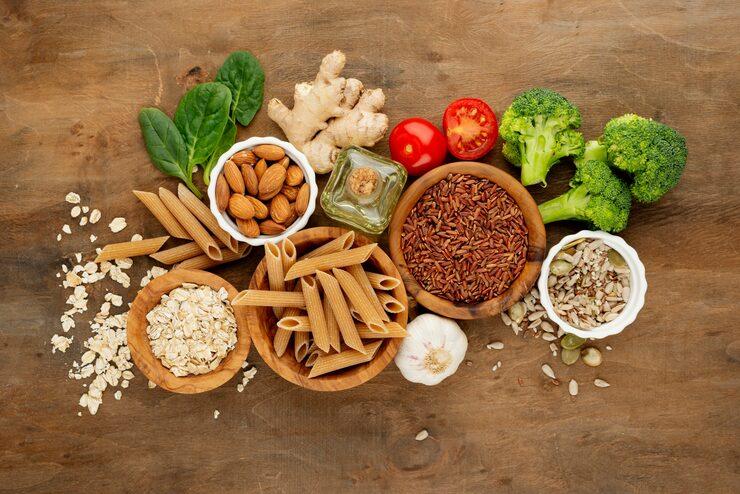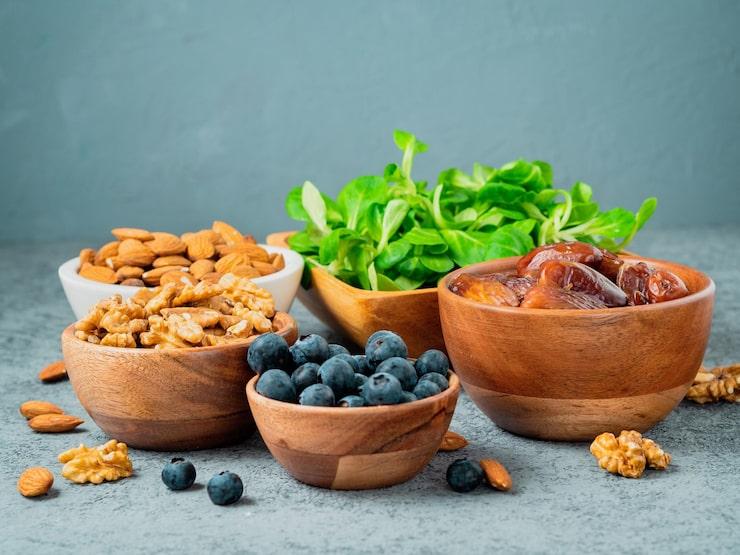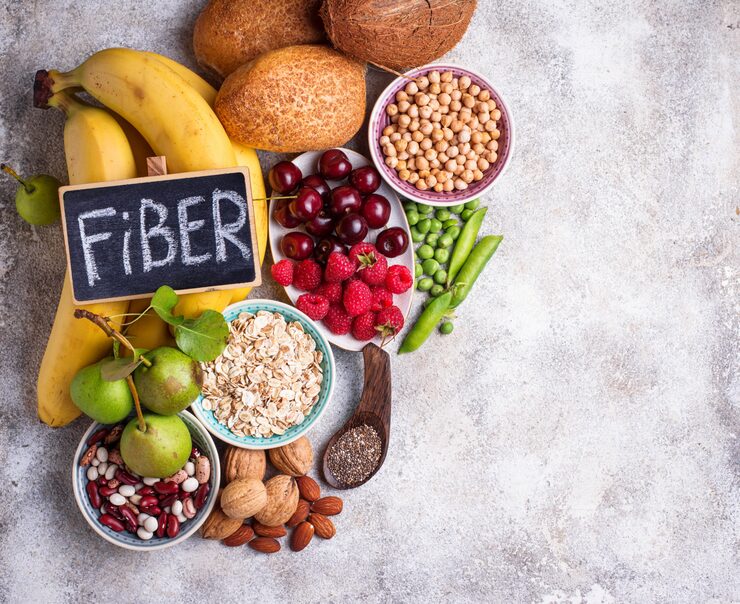
Fiber rich foods
People occasionally forget about dietary fiber, which is a crucial part of our meals. Processed foods and refined ingredients are often the key parts of our meals these days because we are so busy. People usually talk about vitamins, proteins, and minerals, but fiber is also essential for your health and for keeping your digestive system healthy. One of the easiest and best ways to keep your gut healthy is to eat a lot of fiber.
We'll speak about what fiber is, the different forms of fiber, how it helps with digestion, additional health advantages, and easy ways to add more fiber to your meals in this blog post.
Dietary fiber is the part of plant-based foods that your body can't break down. Fiber is not broken down or absorbed by the body in the same way that fats, proteins, or carbs are. Instead, it usually travels through the stomach, small intestine, and colon without any problems, accomplishing vital functions along the way.
There are two main kinds of fiber:
It becomes a gel-like substance when you add water to it.
Oats, apples, beans, carrots, citrus fruits, and barley all have it.
Helps lower cholesterol and blood sugar levels.
It doesn't break down in water.
You can get it from nuts, seeds, whole grains, and vegetables like potatoes and cauliflower.
It helps you go to the bathroom more often and makes your excrement bigger.
Most foods that are high in fiber have both types, which help with digestion in various ways.

Foods that help in digestion
Your digestive system has to be strong so that your body can obtain the nutrients it needs from meals, get rid of waste, and stay healthy in general. This system needs a lot of fiber to work well:
1. Helps you use the bathroom on a regular basis
Insoluble fiber makes poop larger, which helps the intestines move it along. This enables you to stay regular, which is a common problem with digestion. Soluble fiber, on the other hand, makes the stool softer, which makes it easier to get rid of waste without having to push.
2. Stops both diarrhea and constipation
Fiber helps keep poop from being too watery. Insoluble fiber helps your feces from being hard and dry, and soluble fiber absorbs more water, which lessens your risk of getting diarrhea. They work together to keep bowel habits under control.
3. Gives the stomach's beneficial bacteria food
Soluble fiber is a prebiotic because it gives the healthy bacteria in your colon food. These bacteria break down fiber and make short-chain fatty acids (SCFAs) like butyrate, which are excellent for your colon and help lessen inflammation.
4. Keeps the colon healthy. Fiber maintains your colon healthy by making sure you go to the bathroom often and feeding good microorganisms. This lowers the risk of having hemorrhoids, diverticulitis, and colon cancer. A lot of fiber in your gut helps your body digest food efficiently.
5. Controls how quickly the body breaks down food
Soluble fiber slows down how quickly the stomach empties, which helps keep nutrients from getting into the blood at a steady rate. This helps the body break down food and maintains blood sugar levels stable.
Fiber is excellent for a lot of things, but the most crucial one is digestion.
1. Watching your weight. Foods that are high in fiber fill you up, which means you're less hungry and can keep track of how many calories you eat. Fiber slows down digestion, which makes you feel full longer and makes you want to eat less often.
2. Health of the heart: When soluble fiber combines with bile acids in the digestive tract, it helps lower LDL (bad cholesterol). This makes it less likely that you will acquire heart disease, a stroke, or other heart problems.
3. Keeping blood sugar levels steady
Fiber, especially soluble fiber, makes it take longer for sugar to be absorbed. This stops blood sugar levels from going up too soon. This is good for persons who have diabetes or are prone to get it.
4. Helps you reduce weight in a healthy way
Eating a lot of fiber can help you lose weight by lowering the number of calories you consume, helping you control your hunger, and speeding up the breakdown of fat. All of these things will help you lose weight gently and steadily.
5. A better immune system
Fiber is essential for the immune system because it feeds the healthy bacteria in the stomach. A healthy gut microbiome is linked to decreased inflammation and a stronger immune system.
Sadly, many people don't eat enough of the right foods since modern diets don't have enough meals that are made up of whole, plant-based foods.
It doesn't have to be hard to add fiber. You can find them in these places:

Foods that contain Fiber
Instead of processed foods, consume oatmeal, whole-grain cereal, or fruit in the morning.
You could get gassy or bloated if you add too much fiber all at once. Eat more and more slowly so your body can get acclimated to it.
Myth 1: Only seniors need fiber. It's true that everyone, especially adolescents and teens, needs fiber to stay healthy and digest meals well.
Myth 2: You just need fiber supplements. Supplements can help, but whole meals offer more nutrients and phytochemicals that are better for your health.
Myth 3: Fiber is only for people who are constipated. Fiber helps you avoid constipation, but it also lowers cholesterol, keeps your blood sugar in balance, and keeps your gut healthy over time.
If you don't eat enough fiber, you could have a multitude of health concerns, like long-term constipation and bowel movements that aren't regular.
Fiber is essential for your health in the long run, not only for your stomach. It has many benefits, such as improving gut bacteria and regular bowel movements, decreasing cholesterol, and lowering the risk of diseases that last a long time. It's crucial to have enough fiber every day, but most individuals don't.
The good news is that little, consistent changes, like eating whole grains, snacking on fruit, or adding vegetables to meals, can make a big difference. Adding fiber to your diet every day can help keep your blood sugar stable, protect your heart, and make your immune system stronger.
A simple, natural, and effective way to boost your health is to eat more fiber. Contact the expert nutritionists at Prakash Hospital, Noida, for more insight.
We offer expert care across key specialties, including Medicine, Cardiology, Orthopaedics, ENT, Gynaecology, and more—delivering trusted treatment under one roof.
Prakash Hospital Pvt. Ltd. is a 100 bedded NABH NABL accredited multispecialty hospital along with a center of trauma and orthopedics. We are in the service of society since 2001.
OUR SPECIALITIES
Contact Us
D – 12A, 12B, Sector-33, G. B. Nagar, Noida, Uttar Pradesh 201301
+91-8826000033

© 2026 All rights reserved.
Designed and Developed by Zarle Infotech